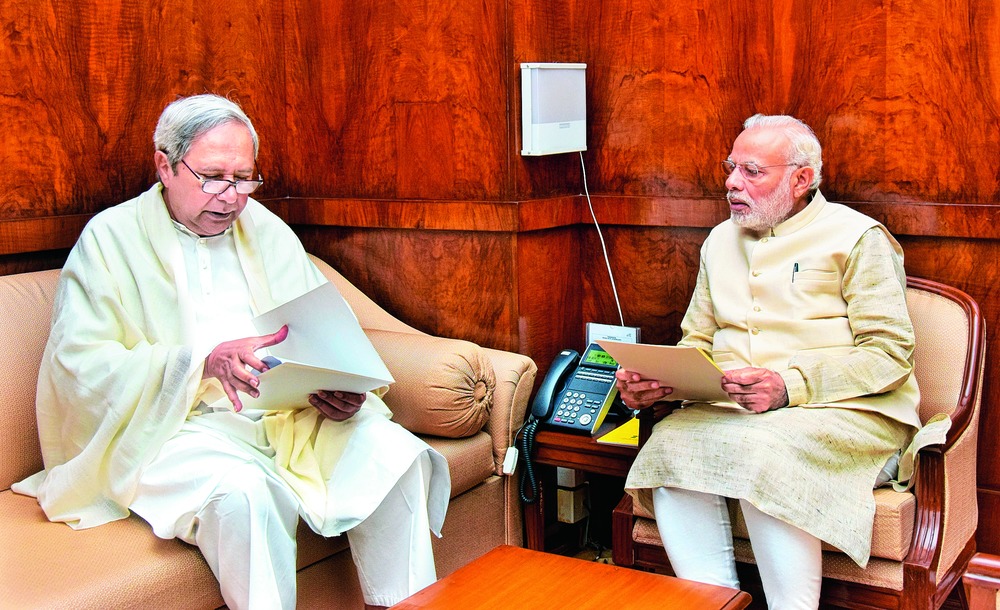
on Monday. Telegraph picture
New Delhi, Nov. 21: Odisha chief minister Naveen Patnaik joined a host of national leaders to ask the Centre to allow co-operative banks to exchange and accept the high-value scrapped notes.
Naveen met Prime Minister Narendra Modi in Parliament and said tribal people should be exempted from submitting PAN to deposit amounts above Rs 50,000 in the scrapped notes.
"I requested the Prime Minister to allow district central cooperative banks to exchange and accept the specified bank notes and exempt tribals living in scheduled areas from submission of PAN," Naveen told reporters.
After the meeting, Naveen said he received "positive" response from Modi.
"The Prime Minister was positive. He said he will look into the demands," Naveen said.
A statement issued by Odisha government later said Naveen supported "wholeheartedly any measure against corruption and black money and stands for greater transparency in public life".
At present, co-operative banks are barred from exchanging the scrapped notes of Rs 500 and Rs 1,000.
The district central cooperative banks cater to a sizable section of farmers and rural people. They are not allowed to accept deposits in specified notes from customers. Naveen demanded increased cash flow to these banks.
In Odisha, over 70 per cent of the farmers are served through co-operative banks and about 44 lakh families are covered under Kisan Credit Card.
Naveen asked the Centre to issue directives to scheduled commercial banks to open brick and mortar branches in the unbanked 4,401 gram panchayats in Odisha by March 2019. As a short-term measure, mobile banks and temporary counters may be started in the localities to facilitate transactions.
In these unbanked gram panchayats, the district central co-operative banks, primary agricultural co-operative societies and large-sized adivasi multipurpose co-operative societies provide crop loans to farmers and sustain procurement operations.
Naveen had also written a letter to the Prime Minister seeking his intervention. In rural areas, the co-operative banks are losing their credibility after they were asked not to deal with the banned notes.
There have been reports of large-scale withdrawals from co-operative banks in the coastal belt, particularly in Kendrapara. The Telegraph had carried a detailed report on the issue in its November 19 edition.
Punjab chief minister Prakash Singh Badal and Kerala chief minister Pinarayi Vijayan have also written to the Centre seeking lifting of the restrictions on co-operative banks.
A few other chief ministers such as Chandrababu Naidu have endorsed permission for co-operative banks to exchange specified notes.
He said the government must ensure availability of cash in Rs 100 and Rs 500 denominations to manage the demand.
Restrictions on disbursement of cash have affected livelihood and entrepreneurial activities of 4.5 lakh strong women self-help groups. Naveen also sought permission to enable the SHGs fully operate their accounts without any restrictions.
Mahanadi dispute
The Odisha government today petitioned the Centre to set up a tribunal to decide the water dispute arising due to a number of dams being constructed by the Chhattisgarh government in Mahanadi and its tributaries.
Naveen apprised Modi about this development and urged his intervention to direct the Raman Singh government to stop the construction activities.
The Odisha government filed a complaint petition to the Union government under Section 3 of the Interstate River Dispute Act.










